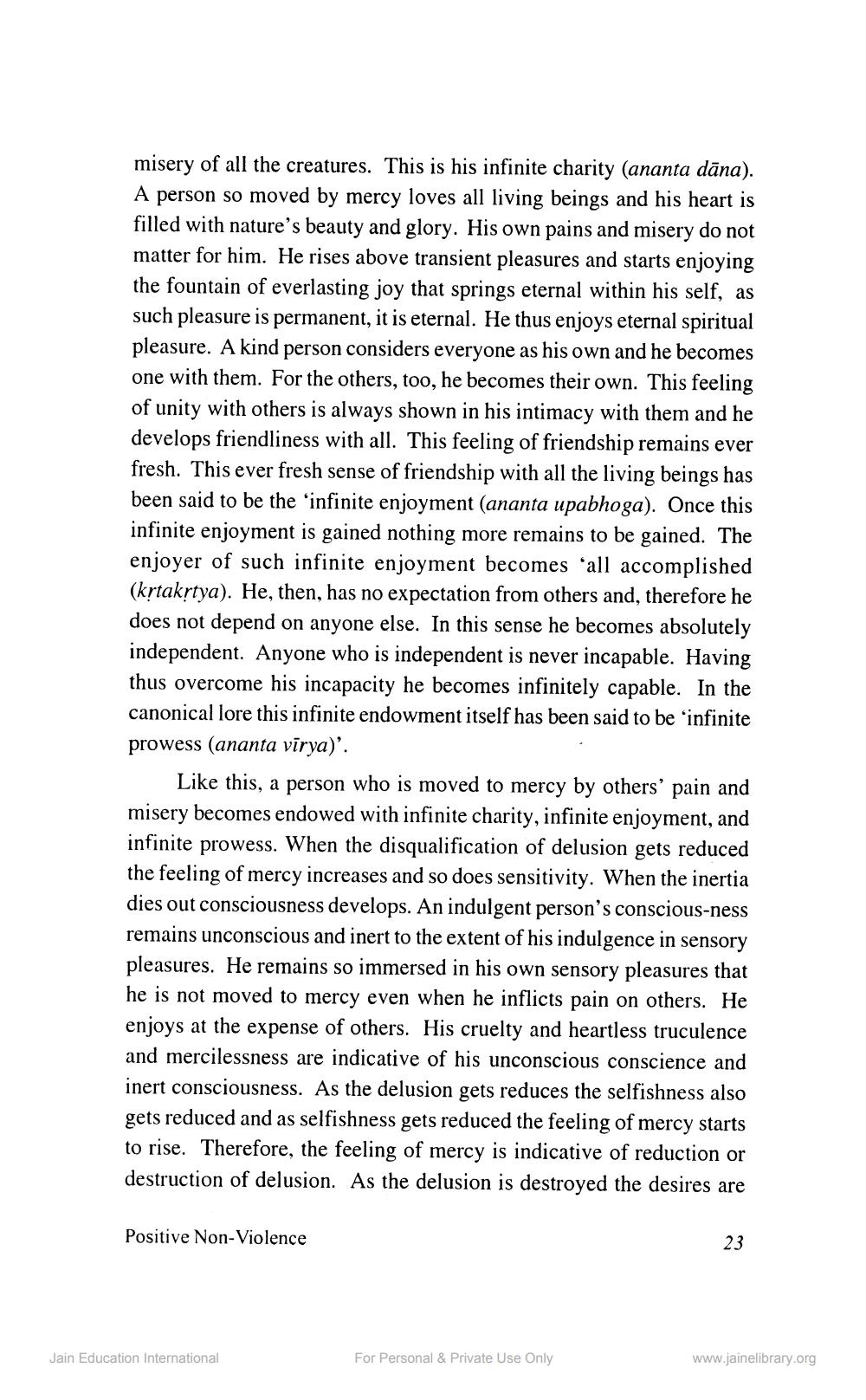________________
misery of all the creatures. This is his infinite charity (ananta dāna). A person so moved by mercy loves all living beings and his heart is filled with nature's beauty and glory. His own pains and misery do not matter for him. He rises above transient pleasures and starts enjoying the fountain of everlasting joy that springs eternal within his self, as such pleasure is permanent, it is eternal. He thus enjoys eternal spiritual pleasure. A kind person considers everyone as his own and he becomes one with them. For the others, too, he becomes their own. This feeling of unity with others is always shown in his intimacy with them and he develops friendliness with all. This feeling of friendship remains ever fresh. This ever fresh sense of friendship with all the living beings has been said to be the 'infinite enjoyment (ananta upabhoga). Once this infinite enjoyment is gained nothing more remains to be gained. The enjoyer of such infinite enjoyment becomes 'all accomplished (kṛtakṛtya). He, then, has no expectation from others and, therefore he does not depend on anyone else. In this sense he becomes absolutely independent. Anyone who is independent is never incapable. Having thus overcome his incapacity he becomes infinitely capable. In the canonical lore this infinite endowment itself has been said to be 'infinite prowess (ananta vīrya)'.
Like this, a person who is moved to mercy by others' pain and misery becomes endowed with infinite charity, infinite enjoyment, and infinite prowess. When the disqualification of delusion gets reduced the feeling of mercy increases and so does sensitivity. When the inertia dies out consciousness develops. An indulgent person's conscious-ness remains unconscious and inert to the extent of his indulgence in sensory pleasures. He remains so immersed in his own sensory pleasures that he is not moved to mercy even when he inflicts pain on others. He enjoys at the expense of others. His cruelty and heartless truculence and mercilessness are indicative of his unconscious conscience and inert consciousness. As the delusion gets reduces the selfishness also gets reduced and as selfishness gets reduced the feeling of mercy starts to rise. Therefore, the feeling of mercy is indicative of reduction or destruction of delusion. As the delusion is destroyed the desires are
Positive Non-Violence
Jain Education International
For Personal & Private Use Only
23
www.jainelibrary.org




